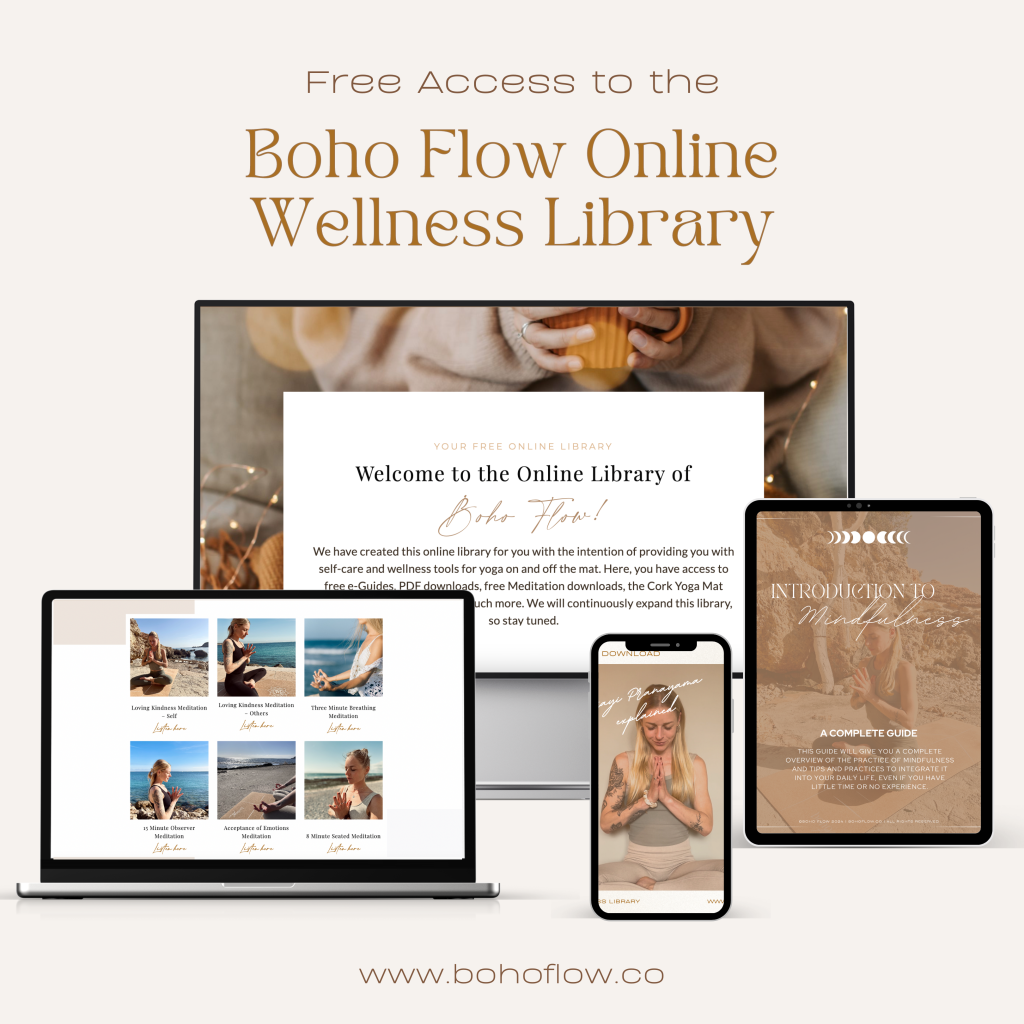Self-Care 101: What It Is, Why It Matters, and Self-Care Examples
Self-care? Sounds simple enough. But what does it really mean, how can we practice self-care, and what are some of the benefits of self-care? If you are looking for answers, you have come to the right place.

In the hustle and bustle of our busy lives, it’s easy to forget one essential truth: our well-being matters. In the journey of life, we often find ourselves preoccupied with responsibilities, work, and external demands.
However, it’s crucial to remember that taking care of ourselves is not a luxury but a necessity. Here is where the concept of self-care steps in—a holistic approach that empowers us to prioritise our physical, mental, emotional, and social health, along with a touch of spiritual well-being. In this article, we’ll explore how you can embrace self-care in different aspects of your life.
Self-Care: What It Is and Why It Matters
Self-care is a comprehensive practice that to enhance your overall well-being. Self-care practices encompass a wide range of intentional activities aimed at nurturing your well-being holistically, meaning physically, mentally, emotionally, socially, and even spiritually. Here is why you should care about incorporating self-care practices into your daily life:
Stress Reduction & Emotional Resilience:
Self-care acts as a potent stress antidote, both on a physical level (see below), as well as on a mental and emotional level. Emotional self-care equips you with the tools to navigate your emotions more effectively.
Improved Physical Health:
Taking care of your body through physical self-care practices can lead to increased energy levels, better cardiovascular health, and a lower risk of chronic illnesses. It enables you to move through life with vitality and strength.
Enhanced Mental Clarity:
Mental self-care practices, such as mindfulness and meditation, sharpen your mental focus and boost cognitive function. You’ll find that you can think more clearly, make better decisions, and handle challenges with a clearer mind.
Boosted Self-Esteem:
Engaging in self-care helps you build a positive self-image and greater self-esteem. As you nurture yourself, you send a powerful message that you are worthy of love and care, both from yourself and from others.
Enhanced Relationships:
Social self-care fosters deeper, more meaningful connections with others. By setting boundaries, practicing active listening, and spending quality time with loved ones, you contribute to healthier and more fulfilling relationships.
Improved Productivity:
Self-care isn’t a time-wasting endeavour; it’s an investment in your productivity. When you take breaks, get adequate rest, and prioritise self-care, you become more focused and efficient in your work and daily tasks.
Increased Joy and Fulfilment:
Ultimately, self-care leads to greater happiness and fulfilment. By nourishing your well-being on all levels, you create a life that is not just about surviving but thriving—a life filled with moments of joy, gratitude, and contentment.
“What you do frequently, becomes your frequency”.
On that note, if we can manage to include daily acts of self-care to feel better about and within ourselves, we can extend this contentment into the world, and it will attract better vibes.
Now that we have established the undoubted benefits, we also want to share how you can go about including self-care practices for your physical and emotional body, your social life, and your spirituality (and not in a religious sense).
1. Physical Self-Care: Nurturing Your Body
Physical self-care revolves around taking care of your body, recognising it as the vessel through which you experience the world. Prioritising your physical health can lead to increased energy, vitality, and overall wellness.
These are examples of daily, physical self-care practices:
Regular Exercise:
Engaging in physical activity, whether it’s yoga, jogging, or dancing, is a powerful way to stay physically fit and reduce stress.
Balanced Nutrition:
Nourish your body with a well-rounded diet rich in fruits, vegetables, and whole grains.
Adequate Sleep:
Ensure you get enough restorative sleep by creating a calming bedtime routine and sticking to a consistent sleep schedule.

Join the Boho Flow Online Wellness Library for FREE to get access to all sorts of tools around well-being and self-care. We provide you with guided audio Meditations, Pranayama (breathwork) video tutorials, free e-Books, PDF downloads, and more! Sign up now for FREE.
2. Mental and Emotional Self-Care: Nurturing Mind and Heart
Mental and emotional self-care involves practices that promote clarity, emotional resilience, and psychological balance. These practices aim to nurture our mind and heart space – basically, our internal space.
Examples of mental and emotional self-care practices include:
Mindfulness Meditation:
Dedicate time each day to mindfulness or meditation to stay grounded and present, and to practice detachment.
Setting Boundaries:
Clearly define your personal and professional boundaries to prevent burnout and protect your emotional energy.
Digital Detox:
Regularly disconnect from screens and social media to reduce information overload and stress. This is especially important in the evenings to produce melatonin – necessary for a good sleep.
Our Online Wellness Library provides you with the FREE e-Guide Download “Self-Care 101”, as well as PDF downloads for a Daily Self-Care Journal and a Daily Gratitude Journal. Join HERE for free.
3. Social Self-Care: Nurturing Your Relationships
Social self-care highlights the significance of meaningful connections with others and maintaining healthy relationships with the world around you.
These social self-care practices are essential:
Quality Time with Loved Ones:
Spend time with family and friends, engage in meaningful conversations, and create lasting memories together. It’s the same old saying: Quality over quantity.
Setting Boundaries:
Establish healthy boundaries in your relationships to ensure your emotional well-being is respected. This also means learning to say “no” when needed.
Self-Care Dates:
Set aside time for “self-care dates” with friends or loved ones, engaging in activities that bring joy and relaxation. By setting time for this, it becomes a non-negotiable.
4. Spiritual Self-Care: Nurturing Your Soul
Spiritual self-care involves practices that nourish your inner self and connect you with a higher purpose or sense of spirituality. Spiritual self-care is important because it addresses a fundamental aspect of human nature — the desire for meaning, connection, and transcendence. It offers a unique avenue for us to find solace, resilience, and a deeper understanding of ourselves and the world around us.
Examples of spiritual self-care include, but are not limited to:
Mindfulness Meditation:
Meditation is a widely recognised form of spiritual self-care to quieten the mind and focus on the present moment. Mindfulness is a specific type of meditation that encourages non-judgmental awareness of thoughts, emotions, and sensations.
Connecting with Nature:
Spending time in nature, such as forests, parks, mountains, or bodies of water, is about consciously connecting with the beauty and tranquility of the natural world.
Journalling and Reflection:
Journalling is a reflective practice where we write down their thoughts, feelings, and experiences that goes beyond daily events. It encourages exploration of one’s spiritual beliefs, values, and experiences. Journalling can involve gratitude journalling, self-reflection, or recording moments of spiritual insight.
Final Thoughts: Embracing Self-Care Holistically
Self-care isn’t a one-size-fits-all concept; it’s a personal journey of well-being. By embracing physical, mental, emotional, social, and spiritual self-care practices, you can create a balanced and fulfilling life. Remember that self-care is an ongoing process, a commitment to nurturing your mind, body, and soul—a journey toward a happier, healthier, and more resilient you. So, take a moment, breathe, and embark on your self-care journey today. Your well-being deserves it.






